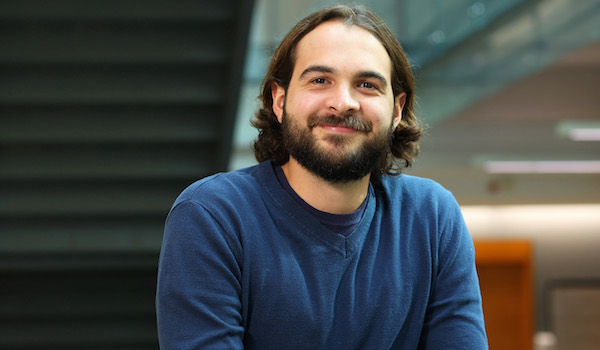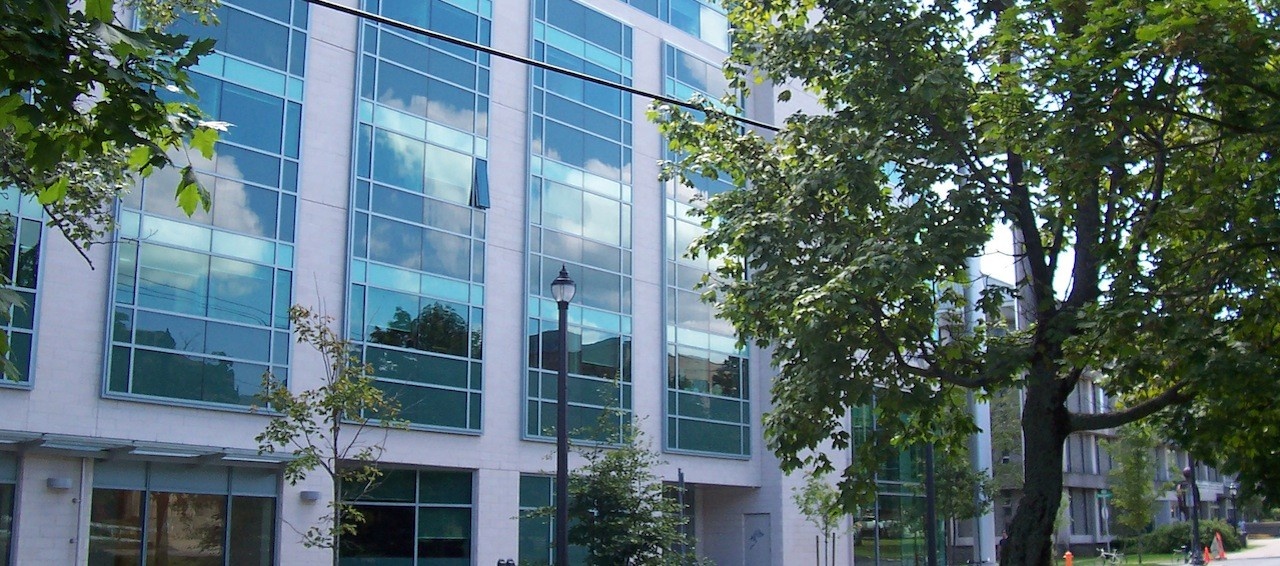News
» Go to news mainFinding his place: Juan Chavez Cabrera
 (Nick Pearce photo)
(Nick Pearce photo)
Juan Chavez Cabrera likes working behind the scenes. Born in Venezuela, the country with the largest known oil reserves, Juan has always been connected to natural resources and understands how they can sustain an economy. On what he initially thought of as a whim, he decided to pursue an undergraduate degree in geology. On reflection, he realized that petroleum and geology “were always in my head.”
After graduating from Dalhousie with an honours thesis in geochemistry and mining exploration, Juan was selected as one of twenty-six geoscience students across Canada to participate in S-IMEW – Student-Industry Mineral Exploration Workshop, which offers hands-on learning in various field exploration techniques and mineral deposits, including applied knowledge in geophysics, geochemistry, environmental sciences, health and safety, and corporate responsibility. It was there that Juan became interested in what was happening behind the scenes in resource and environmental management. He ventured out west (and up north) for a year to apply his skills in the mining and exploration industry.
Exploring a range of options
Despite his adoration of the rugged and remote northern British Columbia landscape of Kitimat, Juan decided to return to Halifax to pursue a Master of Resource and Environment Management. He chose Dalhousie’s program because of the many networking opportunities and the impressive employment rate: 96% of graduates are employed within six months of graduation. Students often land their top internship choice and the post-graduation job they want, and for Juan’s graduating class, that proved true.
He found that the program provided exposure to a range of topics. “You could come into it and focus on being a field specialist, or choose to study more broadly. Mandatory courses were connected, creating a layered knowledge and offering a broad view of a problem and the critical thinking required to understand how that problem intersects in various fields of study,” he says. “There were a lot of guest speakers, which enhanced our understanding of how various topics of environmental management intersect and involve a lot of different communities. This got me interested in being a public servant, which translates directly into my current job. There were also so many good electives to choose from, from industrial sustainability, to environmental education, to courses in public administration.”
While the course options were exciting, it was the passion of his professors, the respect they showed the students, and the up-to-date information they taught that stood out: “They were keen to teach us how to problem-solve, and the information they taught was concurrent with the latest government legislation.” He also appreciated the work-life balance, especially as the pandemic progressed: “Our profs were really good about checking in on our mental health. It never felt like work came before our personal health, and I feel that way about my current job, too.”
A formative course for Juan was the professional development seminar. The advice he received was highly specific and useful in realizing his desire to work in the government. “They look over your resume and CV, help with applications, and our program administrator, Brenda Smart, was very helpful. She does a lot of work.”
Asked what he thinks prospective students should know, Juan says, “Explore and take a lot of different courses; it will give you a good glimpse of career choices you might not realize exist. Also, having a good prof is better than the subject matter. Follow profs whose teaching styles you’re engaged by and that fit your style of learning. You’ll get more out of it and become peers beyond your degree.”
A welcoming community
Now employed by the federal government at Environment and Climate Change Canada, Juan is happily working behind the scenes in the chemicals management division, with responsibilities in risk management and writing regulations. “More technically, I’m a Physical Science Officer, reviewing sciences-based literature, reviewing toxicology reports, and providing input on how to incorporate risk-management tools.”
When asked if he saw himself returning to more remote fields, he said no. “I’m obsessed with Halifax, it’s an amazing place to live. I’ve moved around so much, been a part of cities of seven million people, to communities of ten thousand or less, and I like it here the best. People are so welcoming. The other day, I was out for a walk with my brother, and we said hi to at least ten people we didn’t know.”
In three years, Halifax will be the place Juan has lived the longest, and he is excited to be “an official Haligonian.” As for words of encouragement for his fellow MREM graduates: “Congrats and good luck! It was great being in the program with everyone. I don’t feel like this will be goodbye.”
Recent News
- Dr. Andrew Medeiros named Fulbright Canada Chair in Arctic Studies
- Simon‑Luc Noël's (MES Graduate) Thesis Blog Entry Live on EIUI Website
- shalan joudry’s (MES Graduate/IDPhD Candidate) Directorial Debut to show at TIFF
- Exploring Environmental Social Science: An Interview with Dr. Kate Sherren
- Dr. Andrew Medeiros: Exploring the Frontiers of Freshwater Ecology
- A Profile of Professor Emeritus Karen Beazley
- Dr. Michelle Adams and the Role of SRES in Environmental Sustainability
- Supporting Excellence: Behind the Scenes at SRES
